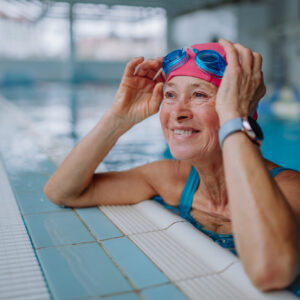Reasons To Keep Moving: More Insights Into The Benefits Of Exercise

Reasons To Keep Moving: More Insights Into The Benefits Of Exercise
July 12, 2023
In many places across the country, it’s very hot, the air quality is not so good and the humidity is exhausting- not exactly a combination that gets you in the mood to go out and exercise (nor should you go outside and exert yourself if the conditions could imperil your personal health). Does that mean you can take a pass at exercise for the next few months? Does vigorously waving a fan in front of your face or cozying up to the AC unit count as sufficient exercise? While no one wants you to put your health at risk in the heat, the reasons to continue physical activity and exercise (perhaps inside or outside only in the early morning or late in the day) continue to mount, with new research demonstrating the value of exercise for healthier physical and cognitive health.
First, consider a new study published in Lancet Healthy Longevity. Recognizing there’s existing data on the cognitive benefits of physical activity, researchers set out to determine if sleep also factors into this equation. Studying more than 8900 people (50 and above) over the course of 10 years, the researchers report that in order to get the full cognitive benefits associated with exercise, you may also need to obtain sufficient sleep: poor sleep can undo the protection that physical exercise provides to your cognitive functioning. The results showed that those who exercised the most and were able to get 6-8 hours of sleep each night had the best cognitive functioning in their 50s and 60s. Those who slept fewer than 6 hours per night experienced a more rapid cognitive decline over the 10 years of the study, even if they continued to exercise. What’s interesting is that among those participants in their 70s, a shorter period of sleep did not diminish the cognitive benefits of physical activity. So whether you’re 60 or 80, hit the treadmill and read more here.
There’s also a new study published in the journal Health and Quality of Life Outcomes, that looks at the association between physical exercise and quality of life among older adults. Coming from the University of Cambridge, researchers set out to look at activity levels and health-related quality-of-life measures, such as pain, mood, and the ability to care for oneself. Following over 1500 participants over a 6-year period, the study reports that decreases in physical activity or increases in sedentary behavior among adults over 60 are linked to a lower quality of life score. In turn, as the quality of life score declines, the risk of hospitalization, poor outcomes, and even early death increases. These researchers believe they established a causal link between physical activity and quality of life, especially as the more active you are, the less pain you’re likely to experience and the stronger you’ll be, helping to ensure your ability to take care of yourself. So get off the couch, into your spandex, and read more here.
Of course, exercising as an older adult is not always easy, especially if you’ve cut back on the physical activities you pursued in your youth. If you’re looking for some inspiration, consider the words of wisdom from older track runners at the recent Penn Relays, some of whom offer advice that includes, “Don’t try to compete with your 20-year-old self. Set goals for where you are now, and keep building from there.” Or, take a listen to the podcast from the new Sanjay Gupta series Chasing Life. In a recent episode, he interviews the renowned older swimmer Diana Nyad, famous for crossing the waters from Havana to Miami at the age of 64. Now 74 years old and still physically active, Ms. Nyad reveals what keeps her going: “It’s part of human nature to have goals. And I think it keeps you younger, keeps you motivated, keeps your system excited.” So set some exercise goals for yourself, whatever can keep you motivated and moving, so as to support physical and cognitive health as you get older.







